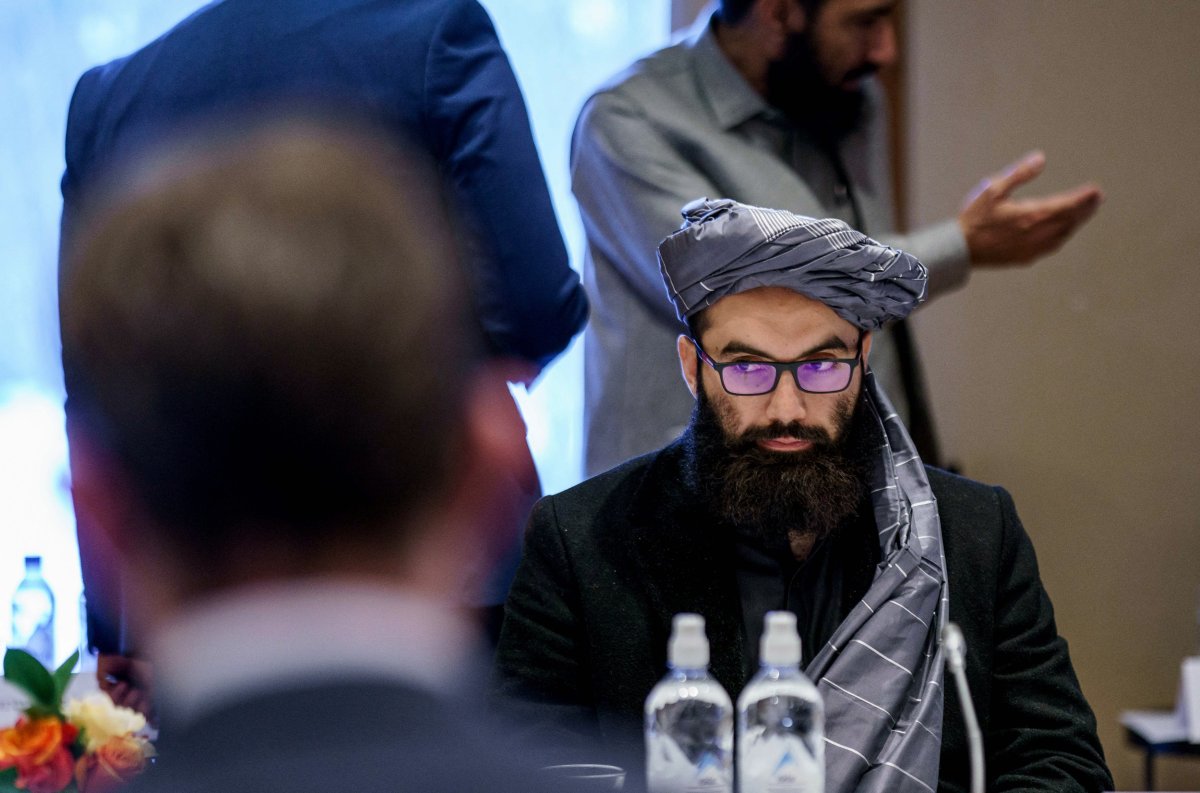Taliban leader Anas Haqqani is wading into the social media war between Twitter and Instagram's new Threads app, saying he prefers Elon Musk's platform due to its free speech policies.
"Twitter has two important advantages over other social media platforms," Haqqani tweeted on Monday. "The first privilege is the freedom of speech. The second privilege is the public nature & credibility of Twitter. Twitter doesn't have an intolerant policy like Meta. Other platforms cannot replace it."
Mark Zuckerberg, the CEO of Meta, which owns Threads, said last week that more than 30 million users signed up for Threads within the platform's first 24 hours, and by Monday that number had surpassed 100 million. Threads is in its infancy but is viewed by many as an alternative to Twitter, which has changed in various ways—including paid subscriptions and verified accounts for anyone—since Musk bought the company last year.
Some have maligned Threads for what they claim are posts being removed due to the platform's guidelines. Former Donald Trump adviser Stephen Miller said conservatives "need a unified response" to the platform and its supposed bucking of free speech.
Haqqani's tweet was met with some backlash from Twitter users pointing out the hypocrisy of the Haqqani Network head talking about free speech when the rights of women and girls in Afghanistan have been trampled after the United States exited the country in 2021 and the Taliban gained control.

A Meta spokesperson told Newsweek via email that the company does not allow terrorist individuals, organizations or networks on its platform.
"In an effort to prevent and disrupt real-world harm, we do not allow organizations or individuals that proclaim a violent mission or are engaged in violence to have a presence on Facebook," the company says in a policy statement. "We assess these entities based on their behavior both online and offline, most significantly, their ties to violence."
Newsweek reached out to Twitter via email and Anas Haqqani via social media for comment.
In March, United Nations experts said the Taliban takeover in 2021 has reverted Afghanistan back to a pre-2002 society, "effectively erasing" over 20 years of progress pertaining to women's rights—including the banning of women and girls from certain schools, amusement parks, public baths, gyms and sports clubs, in addition to not being allowed to work in nongovernmental organizations' offices.
Afghanistan plunged into deeper poverty following the takeover, according to Amnesty International, and restrictions on freedom of the media and freedom of expression increased exponentially and led to the closure of multiple news outlets.
Twitter has two important advantages over other social media platforms.
— Anas Haqqani(انس حقاني) (@AnasHaqqani313) July 10, 2023
The first privilege is the freedom of speech. The second privilege is the public nature & credibility of Twitter. Twitter doesn't have an intolerant policy like Meta. Other platforms cannot replace it. pic.twitter.com/oYQTI3hgfI
Journalists have reportedly been arrested, unlawfully detained and tortured for criticizing the Taliban. Some have faced greater peril, including being "beaten and faced other forms of torture while detained" while others fled the country.
"Wow! So you appreciate freedom of speech?" tweeted a user who describes herself as an activist in response to Haqqani. "But what about all those men& women prisoners who did nothing but speak up about the things they value, like girls' education, singing a song, speaking the truth, women's employment, and condemning Tbs rules?"
"What has it come to .. even Talibs endorsing Twitter," another user tweeted.
"Lol, lauding freedom of speech as a sweet veneer to mask your dark regime, while thousands inside Afghanistan languish in jail for criticizing your oppressive rule... Hypocrisy at its finest" a Twitter user wrote.
Wow! So you appreciate freedom of speech? But what about all those men& women prisoners who did nothing but speak up about the things they value, like girls' education, singing a song, speaking the truth, women's employment, and condemning Tbs rules?
— Farzana Elham Kochai (@Farzanakochai) July 10, 2023
The Haqqani Network is a Sunni foreign terrorist organization originally formed in Afghanistan in the late 1980s that still possesses great power today, with a long-term objective of establishing an independent Islamic Emirate of Afghanistan, according to the U.S. National Counterterrorism Center (NCTC).
Anas Haqqani remains one of the top leaders of the Taliban set up in Kabul, part of a broader network with longstanding ties to Al-Qaeda and other Islamic militant groups operating in Afghanistan and across the region.
U.S. intelligence has deemed the Haqqani Network responsible for carrying out thousands of attacks against U.S. and Afghan forces and civilians, "including some of the largest mass-casualty attacks conducted during the conflict with the United States."
Its tactics have included suicide bombings and deploying explosives against Afghan government security forces, U.S. and other troops—as well as government buildings, schools, prisons and foreign embassies in Afghanistan.
It is believed, according to U.S. intelligence, that the Haqqani Network and its 3,000 to 5,000 members relocated to Pakistan following the 2001 U.S. invasion of Afghanistan. They remained there likely until August 2021, when the Taliban reclaimed control in Afghanistan during what was viewed by some as a botched U.S. exit of military forces.
The network was designated as a foreign terrorist organization in September 2012. Aside from Anas Haqqani, others identified as key leaders include Khalil ur Rahman Haqqani, Sirajuddin Haqqani, Yahya Haqqani and Muhammad Omar Zadran.
Update 07/10/23, 5:21 p.m. ET: This story was updated with comment from Meta.
Uncommon Knowledge
Newsweek is committed to challenging conventional wisdom and finding connections in the search for common ground.
Newsweek is committed to challenging conventional wisdom and finding connections in the search for common ground.
About the writer
Nick Mordowanec is a Newsweek reporter based in Michigan. His focus is reporting on Ukraine and Russia, along with social ... Read more
To read how Newsweek uses AI as a newsroom tool, Click here.






